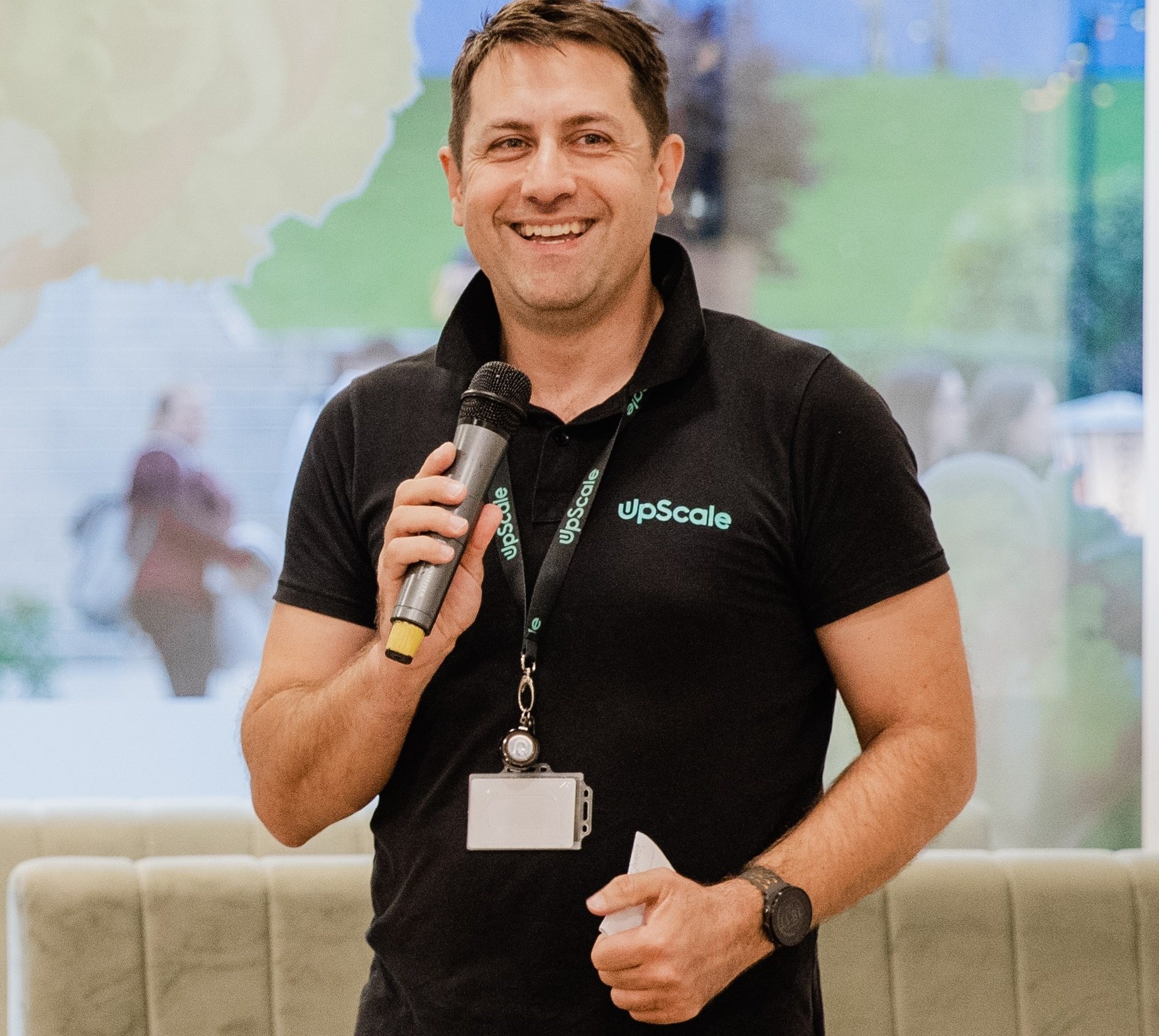Why is it necessary to modernize at all, why are these systems not modern in the first place?
Our clients are typically companies that have been working with gigantic, so-called monolithic or legacy systems that have expanded greatly over years or decades or are using outdated programming languages. These companies usually already feel the growing competitive disadvantage in their own market. Modernization, by the way, is always an exciting task from a professional point of view. The use of modern technologies makes our jobs attractive in themselves, and replacing monolithic systems is a challenge and an additional motivation for our colleagues. With this in mind, we are happy to help even medium-sized companies if we see the creative potential in the task. We are currently working on such projects, which may involve a complete rethinking of IT products.
When I think of a large bank, this does not seem like a small task. How do you modernize complex, huge systems that are already in place?

Almost all our customers expect us to modernize their existing systems while ensuring business continuity. Modernization, which typically involves a move to a containerized, microservice solution and the introduction of new technologies, has evolved into two basic implementation models in terms of methodology. The first is the slicing and piecemeal transformation of the existing system. The other is to design and build a new system in parallel with the existing system, with an MVP (minimum viable product) approach, and to continuously organize the existing solutions from a technological point of view on the new platform. We have experience in both, our client chooses which direction to shift based on their needs and environment. Both require strong system integration competencies. I could go on and on about how many different systems we have been integrated with. Our highly sought-after services include deployment of advanced data storage and delivery solutions (next generation databases), cloud technologies and artificial intelligence. The digitization of workflows, the introduction of workflow solutions and, where appropriate, their full automation, are also in high demand.
How long does it take to complete such a large project?
A multinational bank cannot migrate its system in 3-4 months, but everyone is looking for a quick solution that can be implemented in a short time. We never start a gigaproject with a predefined scope, we don’t present an enormous thing to the client, we don’t take on tasks by signing a contract for 50 months. We always take the project in smaller stages.
Typically, we give indications based on our previous experiences about how long it takes to rewrite a gigantic system. We can tell you what the critical feature sets are that we should focus on so that we can get them across as a whole. We know how to define a microservice so that it’s neither too small nor too big – here we are the ones who bring light into the darkness. Through our previous experience and our knowledgeable colleagues, we can estimate what is both logically necessary and sufficient in the first stage. We can then suggest a shorter, foreseeable project duration or implementation period, for example 3-5 months.
How can you work in an agile way with large, old systems? Can large organizations be agile at all?
There are good examples, but we have never seen true agility in any large organization. In some places they haven’t abandoned the old ways: whether in operations or IT security, but there’s an old mindset that blocks agility.
The Spotify model, which is well suited to enterprise agility, has been adopted by many companies in the Central and Eastern European banking and telecoms sector. There exist organizational models that work well. In my opinion, however, it has to be accepted that a large organization can never be as agile as a small start-up. It is not even a good goal to aim for, because it is unachievable. The important thing is to “streamline” your processes as much as you can. You don’t have to compete in agility, you have to catch up in agility. The big companies may have a competitive advantage in exploiting the value of data (based on modern data storage and transmission technologies) and the artificial intelligence which builds on it.
Why should someone who needs modernization choose UpScale?
The strength of our company lies in its deep and convincing knowledge of modernization know-how as a methodology and its practical application experience.
At the same time, it is important to understand that modernization cannot be replicated from company to company. Domain knowledge is important, but business strategy, focus, infrastructure environment, human resource composition and many other factors that influence how modernization is done vary from organization to organization. In other words, we know what questions we need to ask.
UpScale’s services are really tailored in this sense: we are able to ask the questions that reveal the type of problems a specific customer has. This can make even a relatively standard (yet in many places over the long term ill-conceived or imperfect) implementation of a distributed platform successful. The firm can help ensure that this kind of strategic thinking infuses the introduction of new technologies. In many cases, it is only later that the customer realizes the significant cost and time savings they have made by relying on UpScale’s methodological expertise.
Furthermore, we have a reputation for delivering products that have been thoroughly tested, have the necessary documentation, recovery and disaster prevention plans and so on. All of this is done by our colleagues using the latest technologies.
Why are big companies only now beginning to modernize?
It only seems like they’ve just started. Four years ago, UpScale was brought to life when a large bank offered us the opportunity to test our modernization proposal in a live environment. The proof-of-concept certificate we implemented with our small team at that time was successful and grew into this team of over 100 people we still work with today as our main client.
Since then, we have introduced new generation databases in many places (e.g. Apache Cassandra, Cockroach DB), laid the foundations for reactive programming, introduced KAFKA and implemented modern system monitoring. These actions have direct business value. Many people still think of technologies as an IT issue, but with KAFKA, for example, many of our customers have survived system outages without their customers noticing anything. It is a business issue as well. It is important that very complex systems work together efficiently. Reactive programming makes communication between systems more reliable.
You lived and worked in Canada for several years. How do you see the Eastern European IT labor market after having returned?
The market has bad biases. Companies chase projects, then they lure people into said projects based purely on financial interest, who then stay once the project is over and the process starts all over again. Unfortunately, the changes in recent years have resulted in many people working purely for financial motivation. At the same time, more and more people are becoming disillusioned, frustrated, and burnt out as a side effect. It is awful and empty to work solely for money. Life is about more than that. In our experience, the new generation of talented people are looking for the joy of creating and a sense of life in the workplace.
So it’s not surprising that in Western countries, a company has to be about much more than just a very profit-driven, one-dimensional thing. That is, we don’t follow a mindset like “I have a job and I’m looking for work-life balance”, but rather “I’m having fun at work too”, but this we’re not doing by putting a ping-pong table in the office. That’s not enough.
If we can get people to believe in this, also by showing them an example, we will make progress. I believe that we can make the world a better place, and we go and plant trees, for example, because we want to pass on this belief, not because that’s what everyone is doing now. We are proud supporters of the MyForest initiative, we’ve planted trees on behalf of our partners, dug holes in the 40 degrees and we are now taking part in a reforestation project in November. Our colleagues also gathered together out of intrinsic motivation and went to donate blood.
Many of us have lived in cultures where the standard is to support your own community. We approached Salad Box, for example, which is next door to our office and has an image that is close to ours, to find collaborative spaces. The meetup we hosted there received great feedback. Or another example: a talented film company called Finesse Media Production is making its corporate image film with us, and we hope to be a good reference for them. We also organize meetups, webinars, write blogs to share our knowledge, and we have many more initiatives like this. Unfortunately, for the time being, people often don’t understand what we are trying to do, there is some disbelief about our intention to collaborate.
Unfortunately, many good examples are only implemented on the surface in our country. Volunteering, foosball table culture, agility: all of these exist on the surface, but very few places can actually make it work.
We try to show a good example wherever we can. We are using our own resources to fight discrimination and have improved the gender balance in our workforce. We’re a constant supporter of the international charity United Way – it’s a personal honour to be asked and elected to the board this autumn. We attend charity dinners and silent auctions. It’s great to see the success the organization is achieving in the area of equal opportunities for children as well.
We surprised many people when we started to develop professional and business partnerships with our own competitors. I believe that building a company culture can only come from within, it cannot be faked. It takes a lot of persistent work to create a company that is held together by values and it often feels like we are rowing against the tide. At the same time, we believe that words only do not make a company culture.
